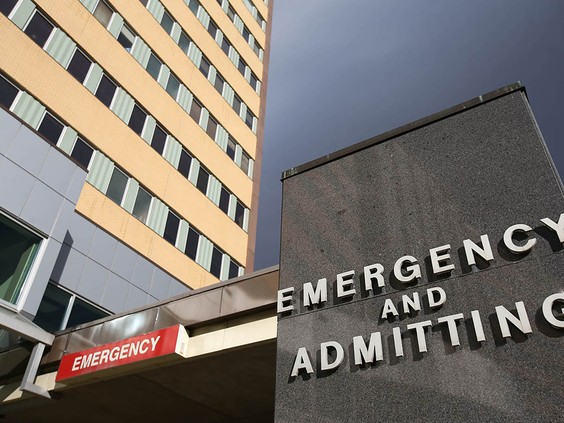Health
University of Calgary Launches Training Program for Hospital Staff

Researchers at the University of Calgary have developed a new training program aimed at equipping front-line hospital staff with the skills to treat patients with mental health and substance use disorders more effectively. The initiative emerged from a series of focus groups led by nursing professor Jacqueline Smith, who highlighted significant gaps in the care provided to these vulnerable populations.
In 2019, the project received nearly $1 million in funding from the Calgary Health Foundation. Smith noted that the research team aimed to address the inequities faced by patients presenting with addiction and mental health issues in emergency departments. “It was very clear that there were a lot of inequities in the emergency department with those presenting with addiction and mental health,” Smith stated, drawing on her experience as a former registered nurse.
The project began during the COVID-19 pandemic, as the team conducted interviews with health-care staff, patients, and their families to gain insight into the challenges faced in emergency care. More than 60 staff members and clients at the Foothills Hospital shared their experiences, revealing four critical issues: high stress levels among staff, inadequate training in handling trauma responses, a lack of understanding of mental health and substance use disorders, and a shortage of inpatient beds. As a result, patients often found themselves confined to temporary psychiatric rooms—some without windows and concrete walls—for extended periods, sometimes up to a week.
“I actually had like a visceral response to these interviews,” Smith recalled. “It was really difficult to hear, especially from patients and families, their experience in the emergency department.” The testimonies highlighted a distressing reality for many, as the environment was often described as dehumanizing, with patients feeling imprisoned. “They weren’t able to go outside at all,” Smith added, emphasizing the compounded trauma for individuals already struggling with mental health and addiction issues.
In response to these findings, the research team developed a comprehensive four-hour training program, adapting materials from the Fraser Health Authority in British Columbia. This collaboration involved a legal contract allowing the University of Calgary to tailor the content specifically for the emergency department context. “We presented that to all of our participants again,” Smith shared, underscoring the importance of incorporating feedback from those directly impacted by the issues.
The training program aims to equip health-care professionals with the necessary skills to provide compassionate and informed care to patients experiencing mental health and addiction challenges. By addressing the identified gaps in training and understanding, the initiative hopes to foster a more empathetic environment in emergency departments, ultimately improving patient outcomes and experiences.
This program represents a proactive step towards enhancing the quality of care in hospitals, reflecting a growing recognition of the need for specialized training in mental health and substance use disorders. As health-care systems continue to grapple with increasing demands, programs like this one could play a crucial role in reshaping the landscape of emergency care for the better.
-

 Science2 months ago
Science2 months agoToyoake City Proposes Daily Two-Hour Smartphone Use Limit
-

 Health2 months ago
Health2 months agoB.C. Review Reveals Urgent Need for Rare-Disease Drug Reforms
-

 Top Stories2 months ago
Top Stories2 months agoPedestrian Fatally Injured in Esquimalt Collision on August 14
-

 Technology2 months ago
Technology2 months agoDark Adventure Game “Bye Sweet Carole” Set for October Release
-

 World2 months ago
World2 months agoJimmy Lai’s Defense Challenges Charges Under National Security Law
-

 Technology2 months ago
Technology2 months agoKonami Revives Iconic Metal Gear Solid Delta Ahead of Release
-

 Technology2 months ago
Technology2 months agoSnapmaker U1 Color 3D Printer Redefines Speed and Sustainability
-

 Technology2 months ago
Technology2 months agoAION Folding Knife: Redefining EDC Design with Premium Materials
-

 Technology2 months ago
Technology2 months agoSolve Today’s Wordle Challenge: Hints and Answer for August 19
-

 Business2 months ago
Business2 months agoGordon Murray Automotive Unveils S1 LM and Le Mans GTR at Monterey
-

 Lifestyle2 months ago
Lifestyle2 months agoVictoria’s Pop-Up Shop Shines Light on B.C.’s Wolf Cull
-

 Technology2 months ago
Technology2 months agoApple Expands Self-Service Repair Program to Canada









